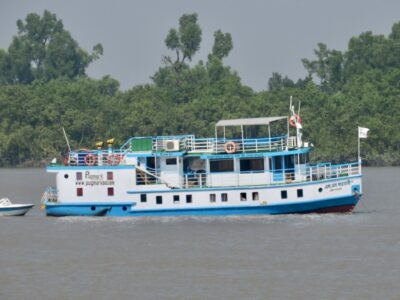
So you want to make things “sustainable” – in companies, governments, the places where you live and work – and you can conceive of the changes that are needed. But do you know how to do it? Do you know what it really takes to make the changes you want? Perhaps you think that the answer is to be found in a spreadsheet or on a graph, and that by presenting the facts, you are bound to win. As it turns out though, what the numbers say is often only the starting point in transforming organizations and communities.
A class next semester, the Practicum in Innovative Sustainability Leadership, will take students into the trenches of sustainability management, teaching them the strategies that practitioners use to improve sustainability performance in the real world.
A select group of fourteen leading sustainability practitioners will visit the Practicum (SUMA PS4310, Monday 6:10 PM – 8:00 PM) to discuss the obstacles to sustainability and the ways in which they work to overcome them. They will discuss strategies, such as obtaining CEO support, understanding the needs of colleagues and speaking their language, the value of trusted allies, rating systems and public accountability, partnerships, community organizing, and working with critics. These practitioners will include sustainability pioneers, like Steve Nicholas of the Institute for Sustainable Communities; visionary leaders, like John Sargent, CEO of Macmillan who will be joined by Bill Barry, the firm’s head of sustainability; a mix of seasoned sustainability executives – Neil Hawkins of Dow Chemical and Michael Levine of Under Armour – and up-and-comers, including Emmanuelle Humblet of Apple, Raghusima Sudhakara of ConEdison, Lacey Shaver of STAR Communities, Saami Sabiti of New York City’s Economic Development Corporation, and Adam Gordon of the UN Global Compact US Network. Two more remarkable leaders will also contribute to the course: Venetia Lannon, Deputy Secretary for the Environment in the Office of Governor Andrew Cuomo, and Donna Givens, CEO and Executive Director of Detroit’s Eastside Community Network.
The talks will take place in the first hour of class, which is open to the public. In the second hour, George Sarrinikolaou of the Earth Institute, who teaches the course, will lead a student-only discussion, whose purpose is to identify and formalize the management strategies that the students are learning. A 10-minute break between the first and second hours will allow students to meet the guest speakers one-on-one. The course assignments will involve the synthesis of and the application of management strategies in simulated organizational contexts.
Students in the M.S. Sustainability Management (SUMA) program are required to take the course for three credits. For them, the course satisfies any of three areas of study: “Integrative Courses in Sustainability Management,” “Public Policy Environment of Sustainability Management” or “General and Financial Management.” Students in other programs, including the MPA in Environmental Science and Policy and the Undergraduate Program in Sustainable Development, have the option of taking the course for one or three credits.
Cross-Registration for SUMA courses begins on Thursday, January 11th. Course permissions will be updated so that students will be able to register directly in SSOL. All students interested in registering for this course from other University Schools and Departments will be able to do so on Thursday, January 11th.



